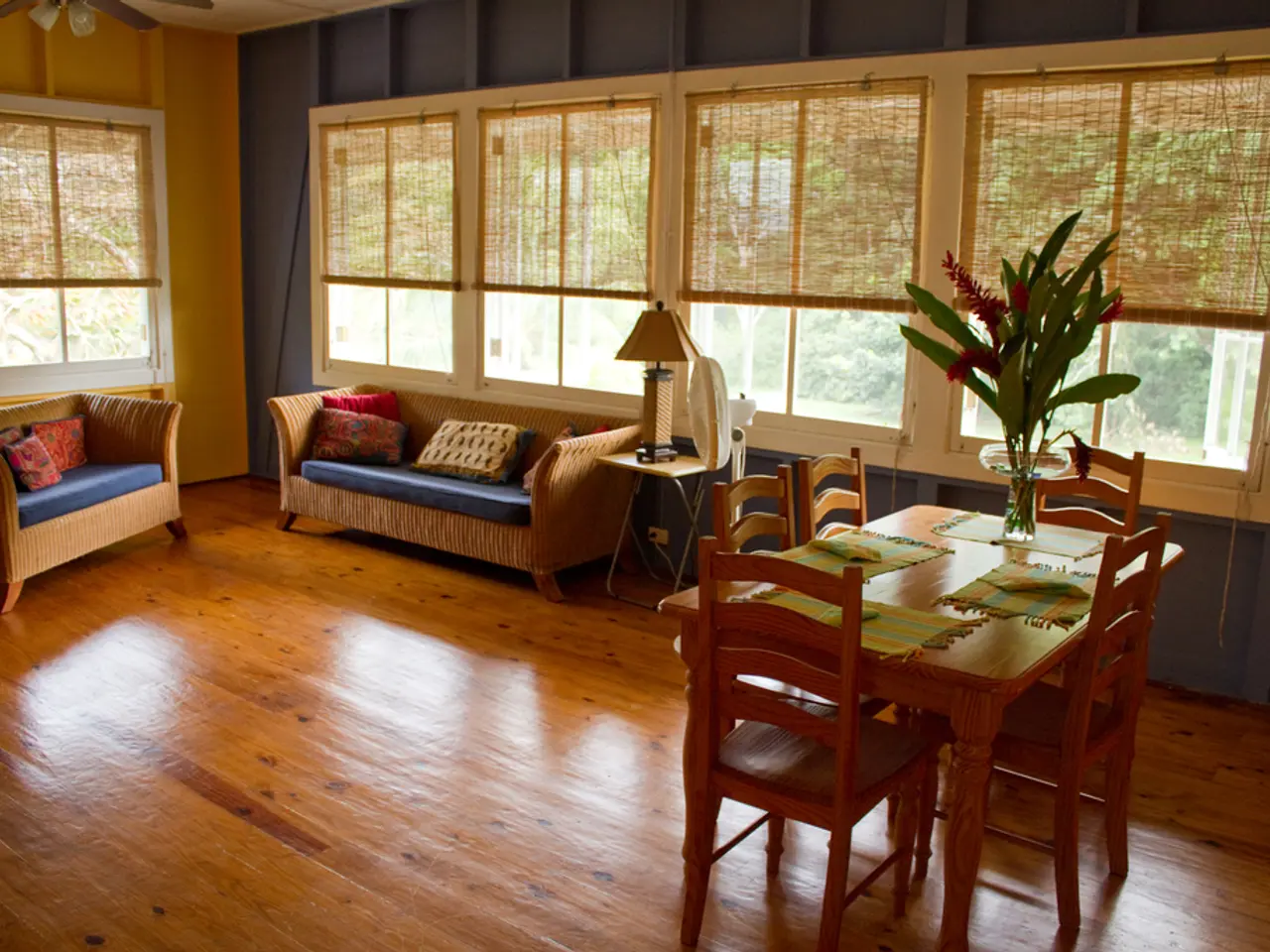City unveils fresh analysis on residential real estate sector
Stuttgart, the bustling state capital of Baden-Württemberg, is actively addressing its housing shortage and affordability issues through a series of strategic initiatives.
- Maintaining and Extending Social Rental Housing Commitments
The city is working diligently to maintain its stock of social rental apartments, negotiating extensions of rent and occupancy commitments with housing companies. With over 5,000 households registered for social rental housing at the end of 2024, many in emergency need, this effort is critical. In 2024, 284 new social rental apartments were occupied, alongside a few dozen fully subsidized and middle-income rental units. However, waiting times remain long, especially for larger families.
- Large-Scale New Urban District Development—Rosenstein Project
The Rosenstein development, a major urban housing project near Stuttgart's main railway station, aims to create up to 1,670 modern and affordable apartments on municipal property. The project incorporates sustainable urban development with public spaces, cultural venues, and green recreational areas near the city center. A high proportion of subsidized housing is planned to prevent derelict sites and tackle the housing shortage directly. However, the project faces public opposition and a potential referendum, which city leaders argue would risk leaving valuable brownfield land unused.
- Renovation and Modernization of Existing Housing Stock
Efforts have been made to renovate and modernize housing units on US military installations within Stuttgart, such as Robinson Barracks, to enhance quality and availability for service members and families. This reflects a broader commitment to improving housing conditions through modernization.
- Alignment with Broader German Construction Standards and Challenges
While Stuttgart-specific data dominate, the city's efforts fit into the national context where the construction sector is robust, building nearly 300,000 flats and houses in 2023, but still unable to fully meet urban demand. Challenges such as high land prices, interest rates, and strict building regulations are factors that both Stuttgart and other German cities must navigate to sustain and expand affordable housing supply.
In addition to these strategies, new foundations for cooperation have been established with representatives of the Stuttgart housing industry to promote the construction of new affordable housing. Over 450 eligible applications demonstrate the attractiveness of the funding program for achieving the city's climate goals.
Many Stuttgart tenants are affected by high housing cost burdens, with rental households spending around 29 percent of their net income on their gross cold rent in 2024. The rental market remains tense, with the average local comparative rent in April 2024 being 11.15 euros per square meter of living space.
The city is investing especially in the construction of social rental apartments to enable income-weak households to live affordably. The rental market is expected to remain under pressure in 2025, with a significant demand surplus still present.
For more detailed information about these topics, refer to the thematic issue No. 2/2025 from the Statistical Office, available for purchase or free download.
[1] Stuttgart Statistical Office, 2025. [2] City of Stuttgart, 2024. [3] US Army Garrison Stuttgart, 2024. [4] Federal Statistical Office, 2023.
- In an effort to tackle housing affordability issues, Stuttgart is partnering with its housing industry to promote the constructing of new, affordable housing units, seeking funding that aligns with their climate goals, especially in the realm of social rental apartments.
- Aware of the rising demand for affordable housing, Stuttgart is focusing on investing in real-estate development initiatives, such as the Rosenstein Project, which aims to create over 1,670 modern apartments to meet the growing need for affordable homes and reduce the pressure on the housing market. The city leaders actively discourage public opposition to such projects, acknowledging the risk of leaving valuable brownfield land unused.




